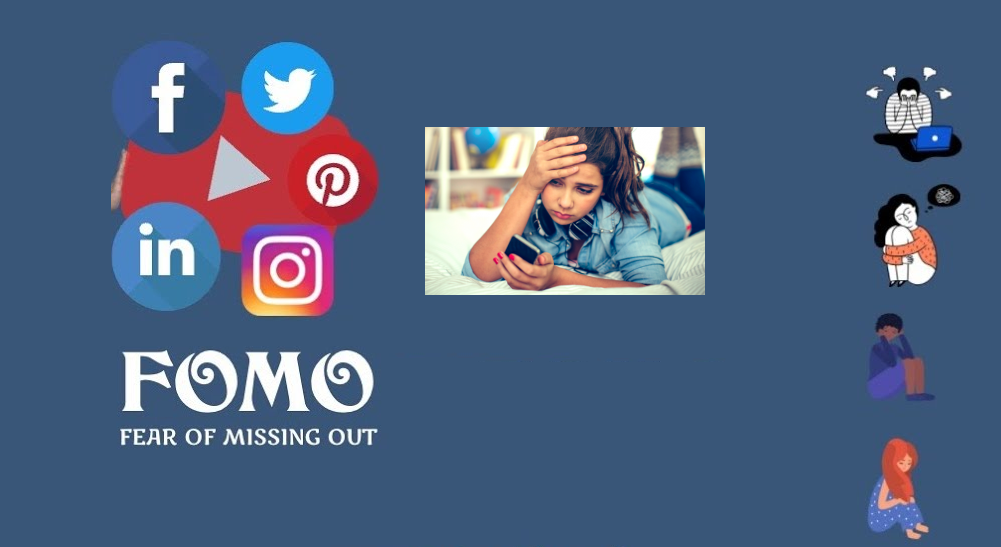FOMO fever on social media
| Date :16-Jun-2025 |

Today, when lives are driven by ‘likes’, ‘stories’ and ‘comments’ on social media platforms, there comes another concept -FOMO, i.e the Fear Of Missing Out that is taking over people. So much so, that it is taking a toll on the mental health of young people, especially adolescents. Scrolling through reel after reels of vacations, parties, and the illusion of good life others are having, they start feeling left out.
A recent example of this is the British rock band Coldplay’s concerts in Mumbai and Ahmedabad. Right from the moment the concert began, social media was flooded with people posting photos and videos of them enjoying it, most of them after paying a month salary for the ticket. Later, many realised how they had got carried away in the euphoria. Among them was a 24-year-old woman who shared her feelings on social media platform.
She detailed how she paid a huge amount for the event, despite not being a fan of music, only because of her fear of missing out. In the same post she also expressed how she felt less fortunate in life seeing the good looking and moneyed young girls and boys around her
This shows how social media has created a facade of unrealistic expectations, creating shallow definitions of ‘perfect’ and ‘happy.
Platforms that were once meant to connect people now amplify comparison. People do not just compare what they wear or own - they compare timelines, success stories, relationships and even emotions. It’s no longer about living in the moment but proving that your moment is
worth posting. So there are many like the woman from the Coldplay concert. They show up at events not because they want to, but because they’re afraid of being left behind. Every ‘story’ is carefully curated, every outfit planned, every caption drafted to appear effortless. And yet, when the stories expire after 24 hours, what lingers is not joy but emptiness and the nagging thought, “What next?” The impact of FOMO goes beyond mental health - it creeps into our relationships, our careers, and even our self-worth.
People begin to chase experiences not for joy or growth but for visibility. And the irony is that the more we chase visibility, the more invisible we feel to ourselves. So what can be done?
The solution doesn’t lie in quitting social media but in redefining our relationship with it. It starts with identifying if you’re scrolling through the phone out of boredom or insecurity, asking why you want to make moments of your life public.
It’s also about conversations. Schools, colleges, and families need to normalize discussions around digital fatigue, self-image, and emotional honesty.
In the end, the truest moments in life often go unposted. They exist in silence, in joy that doesn’t need applause, in memories that aren’t filtered. The fear of missing out will always stay but we can train ourselves to listen more closely to the deeper voice that reminds us we’re already enough - even if no one’s watching.
By Arya Shende